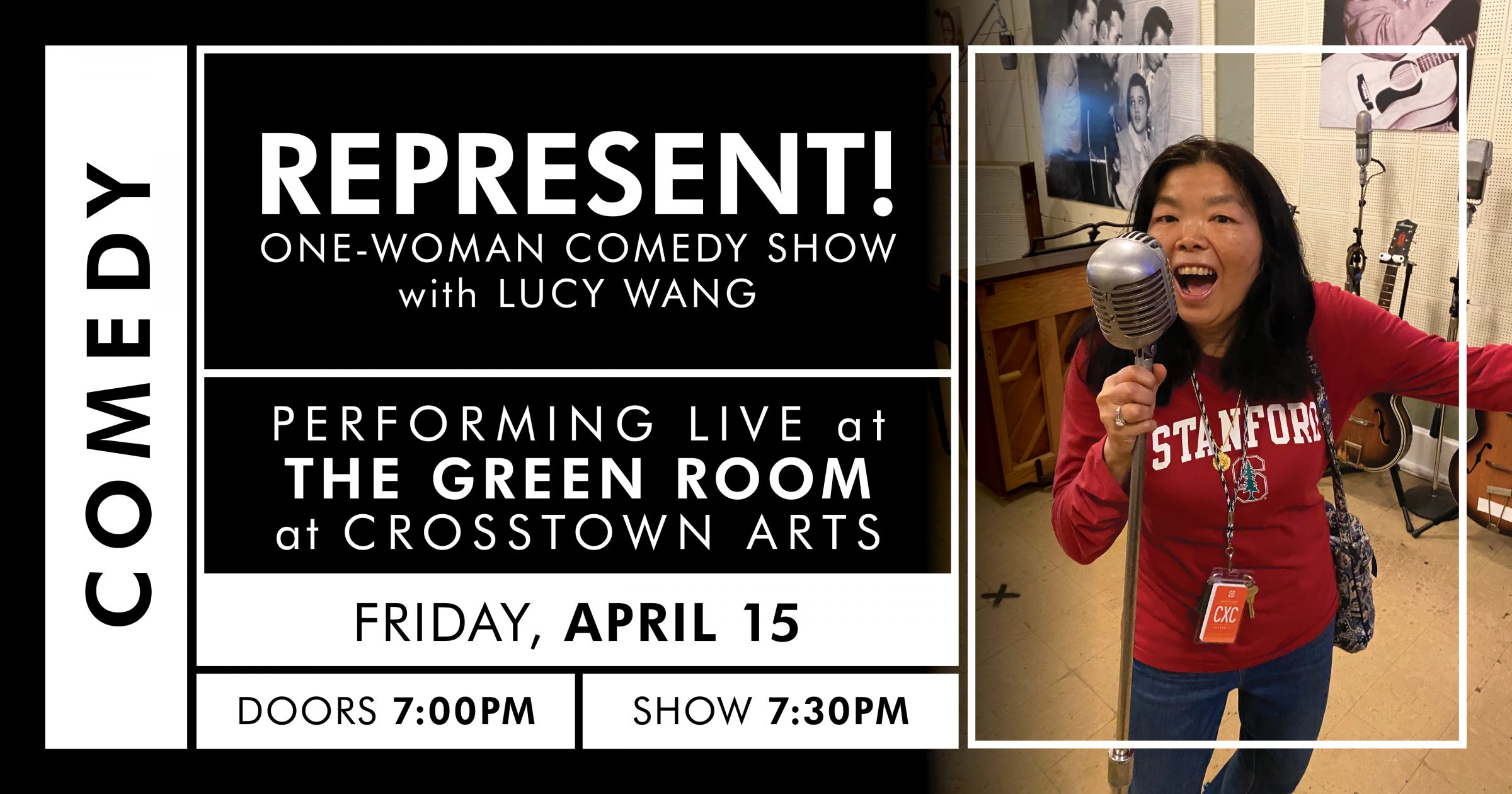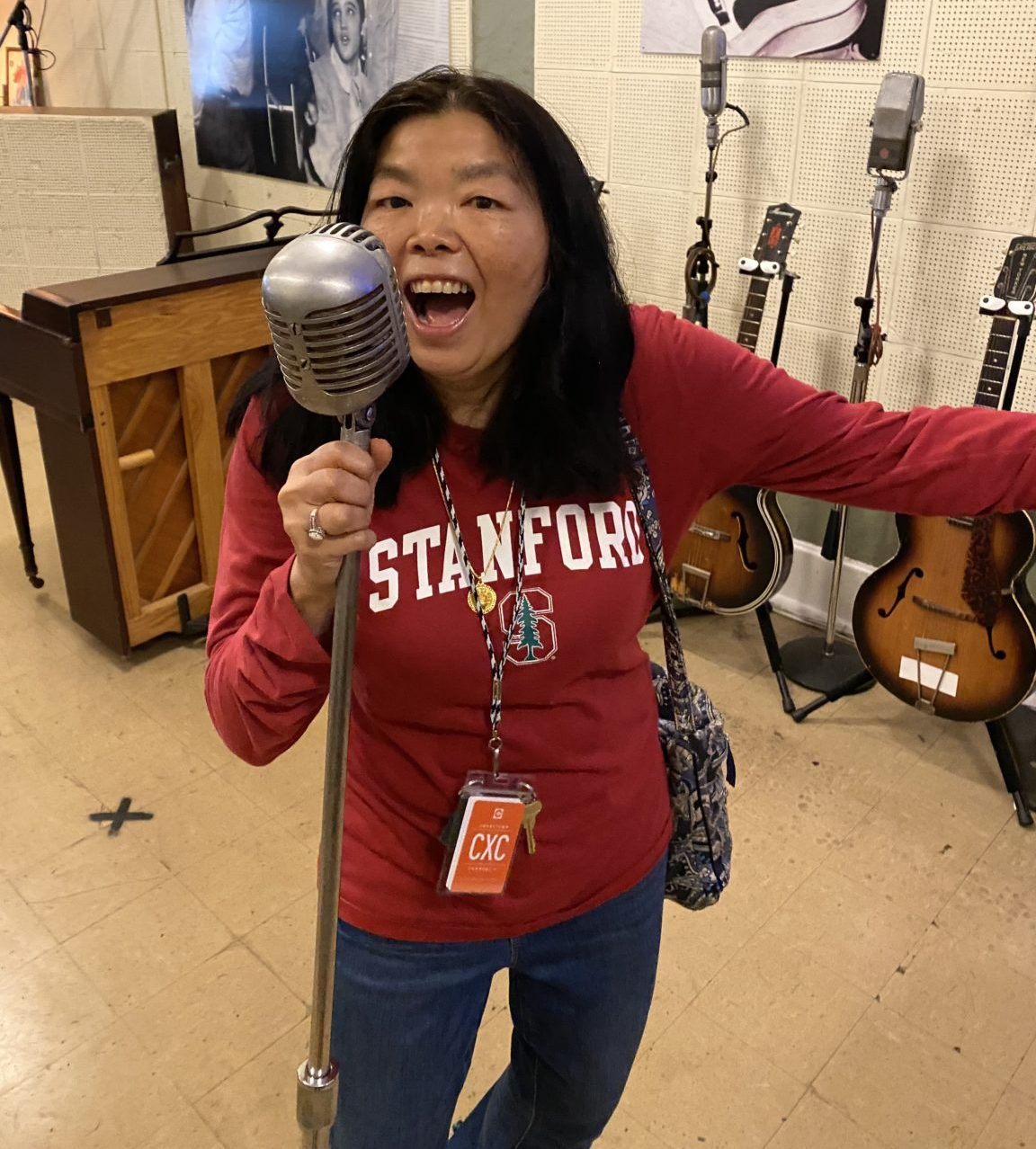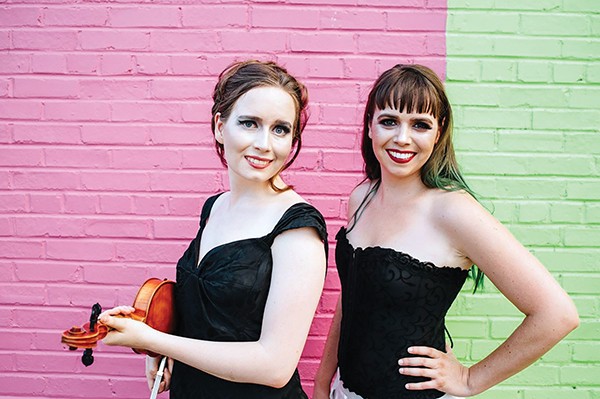Comedian, playwright, and Crosstown Arts resident artist Lucy Wang has been in Memphis for about three months. In that time, she’s weathered an ice storm, discovered an appreciation for the Bluff City’s famously clean drinking water, visited Elmwood Cemetery, and cultivated her own Memphis Mafia. In other words, though she’s based out of Los Angeles, California, when she’s not an artist in residence at Crosstown anyway, she’s more or less an honorary Memphian now. And this Friday, Wang will bring Represent!, her one-woman comedy show, to Crosstown Arts’ Green Room.
“I did something on WYXR,” Wang says, discussing the work she’s done to promote her upcoming performance. And, it turns out, that performance is something of a milestone for the still relatively new event space. “I’m going to be the first comedian to perform at the Green Room.”
When asked which, if any, of her art forms she prefers, Wang says, “Both mediums you have to respect your audience.” But, she continues, “Comedy is very engaging and it’s instant feedback. It’s one of the greatest sounds, right? Laughter.”
Comedy can be like tricking someone into eating their vegetables. Wang knows people want to laugh — need to laugh — and not everyone is prepared to sit down and have their heart wrenched in a theater. Even though her comedy often deals with serious subjects, there’s an element of levity that helps the medicine go down, so to speak. “Sometimes you can cross the red/blue line with comedy,” she says. “Maybe what you were talking about has some validity because you found an angle.”
Her upcoming comedy show represents only some of her artistic output though. As with most of Crosstown’s resident artists, Wang has been putting in time on a larger work while she’s in Memphis. As part of her residency, Wang is working on a musical comedy about Dr. Morris Fishbein and Dr. John Brinkley, two historical figures on opposite sides of a fight over the ethics of medicine. “Brinkley was a charlatan quack doctor, and he got famous by doing goat glands transplants,” Wang says. She has been outlining the musical and doing research — lots of research, an important component of Wang’s comedy and playwriting — while she is in town.
“Fishbein is the first Jewish doctor to be the head of JAMA, the Journal of the American Medicine Association. He made JAMA what it is today, and AMA, the American Medical Association,” Wang explains. At the time, she continues, “The medicine was the Wild Wild West. … There was so much reckless disregard.” Fishbein made a practice of exposing reckless doctors, which is certainly a category Brinkley would fall into. Wang says the play is also about the national obsession with youth, noting that the transplanting of goat testicles (yes, you read that right) was advertised as a miracle cure to help people stay young and to aid in flagging fertility or virility. “It’s like if you’re over a certain age, you’re over the hill,” Wang quips, noting that the national obsession with youth is particularly evident in L.A.
The comedian says she hasn’t noticed the same mania for youth in Memphis, but it would be hard to compete with Hollywood in that regard. It’s safe to say that Wang’s observations are on point, though. She is clearly a keen observer and someone driven to know more about the world in which she lives. Memphians who attend her Represent! performance will be the beneficiaries of her observation, as she has worked on weaving in her experiences to give her comedy show a little “Memphis flavor.”
“When I first came to Memphis — it’s the first place I’ve really traveled after the pandemic — a lot of my friends told me not to come. They panicked. They told me not to come. That’s part of the comedy, ‘You’re gonna die!’ Because the Asian-American population here is very small,” Wang recalls. “When Tommy Kha’s photograph got taken down, they said ‘See! See? You’re going to be erased! You’re going to be marginalized!’ But I think the South is more than that. Memphis is more than racial and civil rights strife. We have these stereotypes because we don’t leave our house. We have these stereotypes that Southerners are conservative and anti-Asian and don’t read books. I mean, the thing about Maus came out, and people were like ‘You can’t go there! They don’t value good books. They don’t value history.’ And that’s the comedy. I am scared. But if I don’t leave my house, I’ll never know, and if I do leave my house, I’ll see that there are some really great people here.”
She continues, “I have a Memphis Mafia. I came her with three names, and they basically helped me get through this ice storm. I arrived here the day before the ice storm, and I thought, ‘Oh my god, my friends are right. I am gonna die here!’ … But I had the names of three women, and they helped me. They barely knew me, but they were friends of friends.” The friends of friends snapped into action after the February ice storm, and asked if she needed blankets, a flashlight, or a ride to the grocery store. “Southern hospitality is real,” she says.
It can be difficult to draw hard distinctions between Wang’s comedy and her plays, because the latter helped pave the way for her comedy. And vice versa. “When I get a theater interested in my work, they would often tell me they couldn’t cast. They would say there are no good Asian-American actors, or nobody funny,” she says. “So Gloria Steinem is the one who convinced me to do comedy. She’s the last person who told me to do it, and then I decided to do it.”
“I felt like if I didn’t go up there, then the final word would be ‘well, we cannot cast,’” Wang says. “So I got into comedy because I wanted to be included. … It was a way for me to say ‘Hey, I exist.’ Because diversity is a fact, and inclusion is an act.”
Lucy Wang performs in Represent! at the Crosstown Arts Green Room, Friday, April 15, 7:30-9 p.m.


